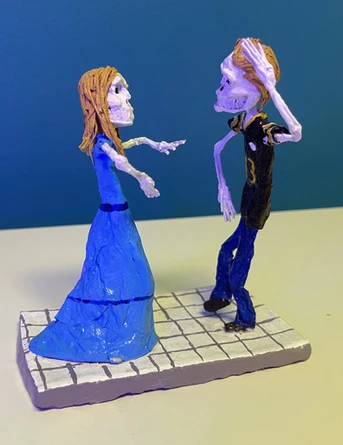Joe Barron: Moving Forward Through Art

"Instead of dwelling on how bad it was gonna be and have that dominate me, I promised myself I was just gonna focus on perfecting my art.”
Joe is from Durango, Mexico; he came to the U.S. At nine years old. He has lived in the U.S. for more than 50 years. Growing up he always had an artistic spirit, he loved to spend time drawing and imagining new ideas. Later in life, Joe struggled with drugs and landed in prison, this is where he began making sculptures from toilet paper. "Instead of dwelling on how bad it was gonna be and have that dominate me, I promised myself I was just gonna focus on perfecting my art, and so that's what I did." Afterwards, Joe successfully fought with Rekha Nair when she was the PLAN Attorney at the Florence Immigrant & Refugee Rights Project to have a second chance to keep his legal residency. Joe is proud of the new path he is on and finds great joy in his role as grandfather and father.
We are so honored Joe took the time to chat with us over his immigration story and his journey in pursuing art, learn about his story below.

Understanding Your Culture to Understand Your Reality
Joe discusses his path towards immigrating to the US with his family when he was 9 years old. He shares his experience growing up and how eventually he landed in prison but was able to receive support navigating the various complexities of the US immigration system. Joe also shares his perspective on the anti-immigrant sentiment in the U.S. and how it is rooted in the fear of change.
Moving Forward Through Art
Joe talks about how sculpting toilet paper figures gave him an outlet to cope with his time in prison and has followed him into his retirement. As he has continued developing his craft he has incorporated more and more of his culture and hopes to inspire younger generations to remain connected to their customs and traditions.





Any views, findings, conclusions or recommendations expressed on this website do not necessarily represent those of the National Endowment for the Humanities.
